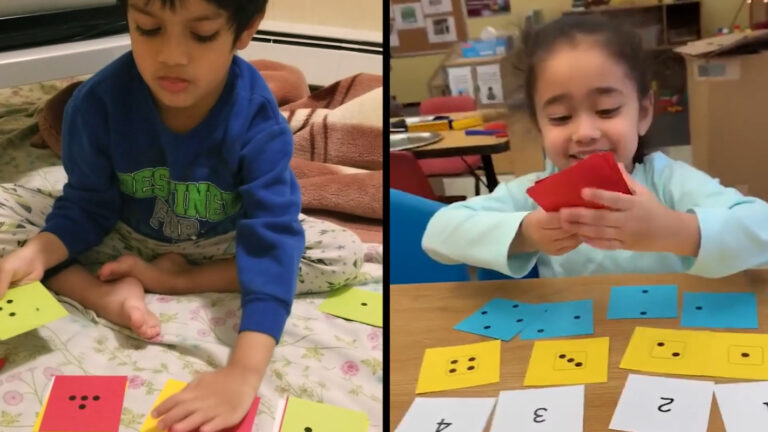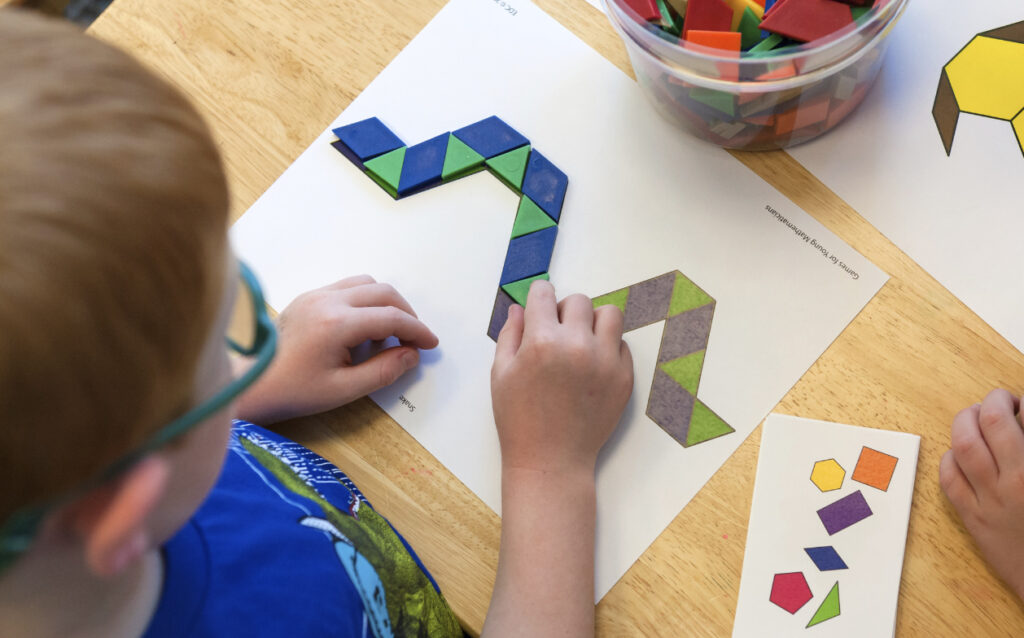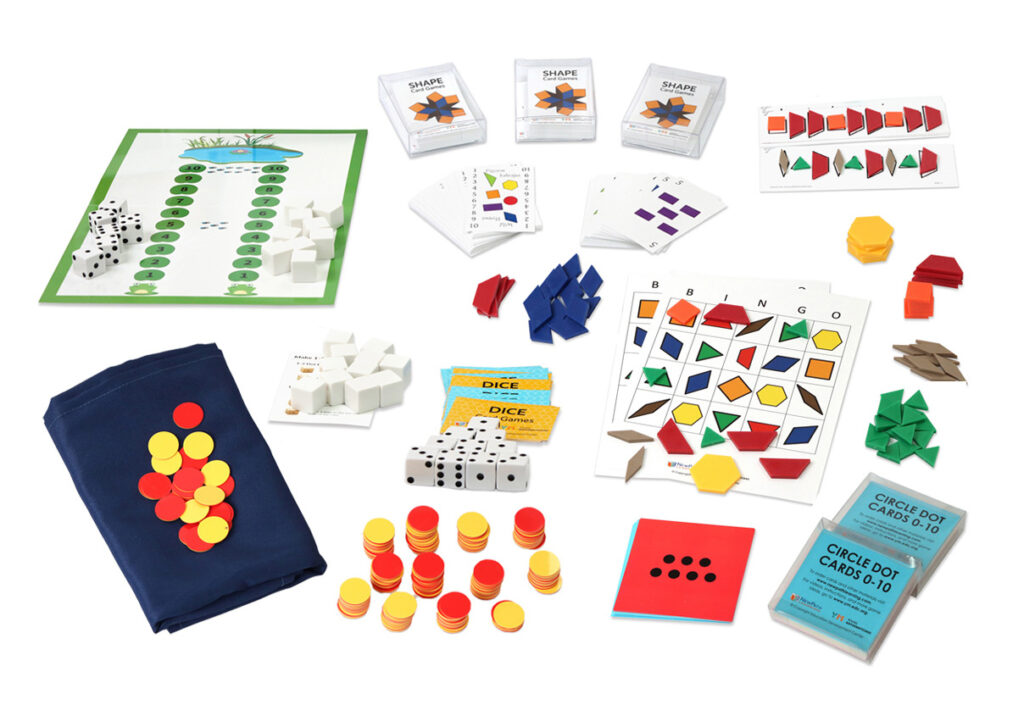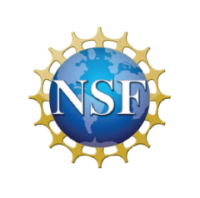Math games for home
and school

Learn About Young Mathematicians
Sharing fun math experiences with teachers and families.
EDC’s Young Mathematicians program is designed to foster young children’s early engagement with mathematics by supporting math learning across home and school environments. In close collaboration with educators and families, we have created over 55 freely available mathematics games for young children to play at home, at school, or during family play and learn events.
Play Our Games
Explore more than 50 games with printable materials, directions, and videos available in English, Spanish, and Portuguese.


Get Our Kits
We partnered with NewPath Learning to provide game kits with the teacher’s guides, math minibooks, and game materials packaged and ready to use.
Games to try first
Testimonials
“I found with a lot of these games that I could expand on them, so they were getting a lot of math
throughout the whole day; I can incorporate them in to circle time. They all sit in a circle and roll the
dice and jump so many times, or whatever they need to do. It’s a good transition to go wash their hands
or whatever they need to do.”
“As a parent, you do [math] examples with the kids but you don’t have a structure for… learning, like you
have this program. They are learning. It’s structured, it’s like you have a curriculum. It’s different
when you have [this program] at home.”
“I think that you should always give all children the opportunity to benefit, because their brains at this age
is ready to learn everything that it.”
“I really think that a parent group should
have [this program], and have the teachers and parents talk about it growth mindset and give
them the extra encouragement, or remember when you count you would go slow.. knowing
that they are going to make mistakes and that its normal, that would be nice.”
This work is supported by the Heising-Simons Foundation Grants 2015-023, 2016-13, 2019-1396, 2021-2871, 2022-3381, 2023-4803 and Overdeck Family Foundation Grant 2019-1396; and by the National Science Foundation Grants DUE1348564, DRL 1907904. Any opinions, findings, and conclusions or recommendations expressed in this material are those of the author(s) and do not necessarily reflect the views of the National Science Foundation.

